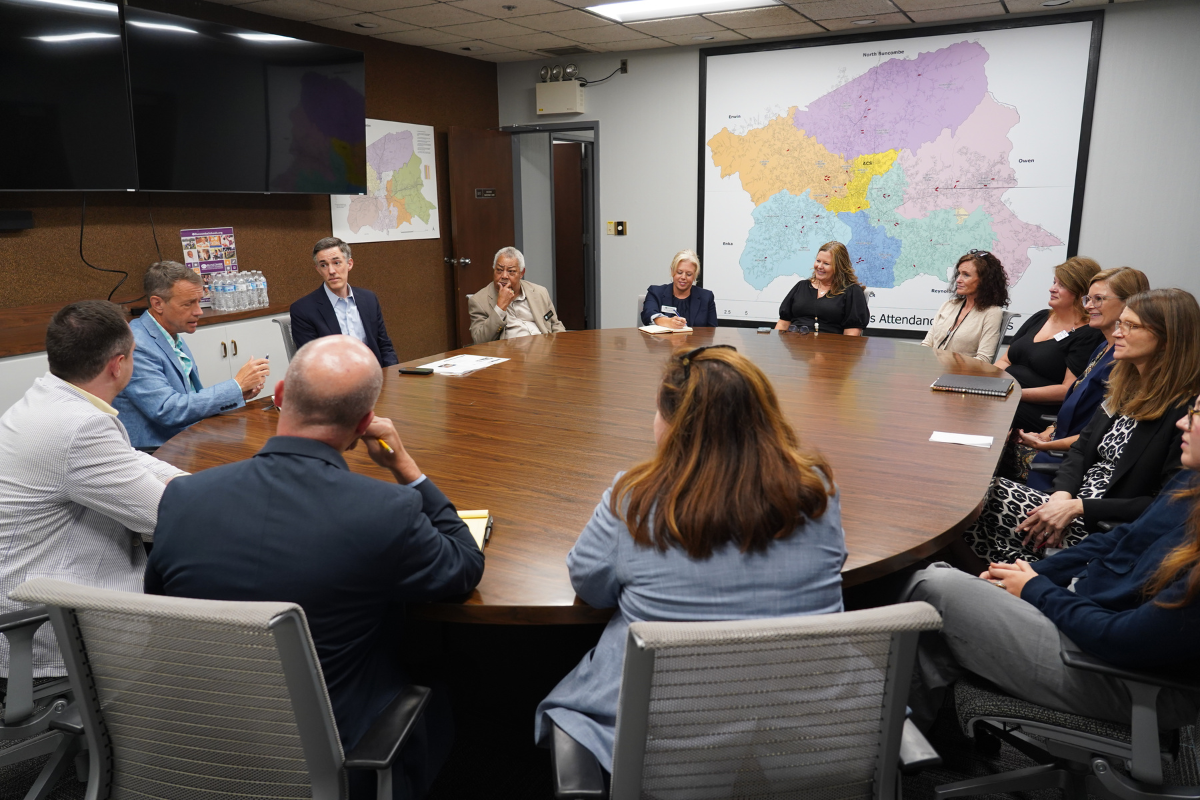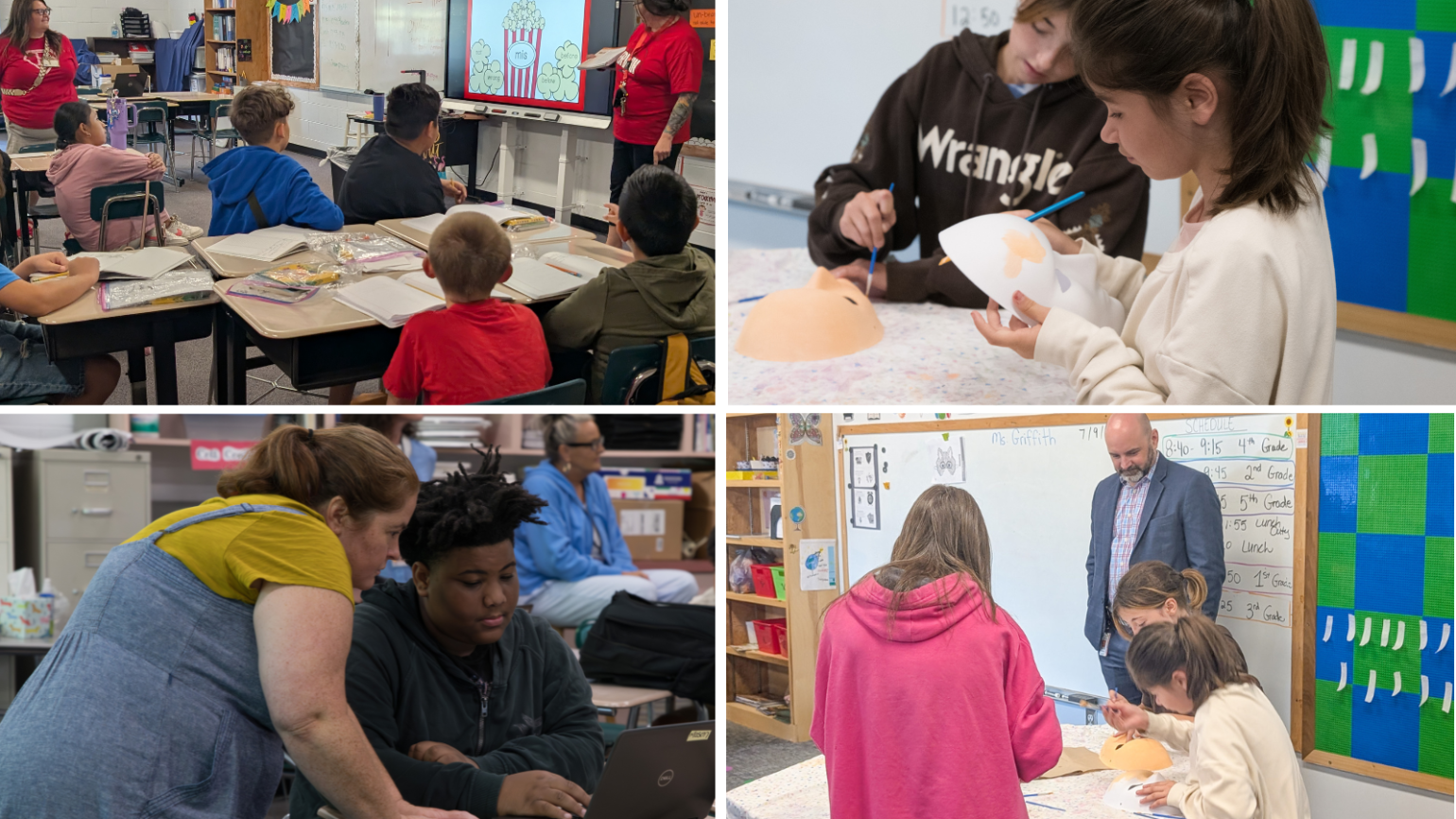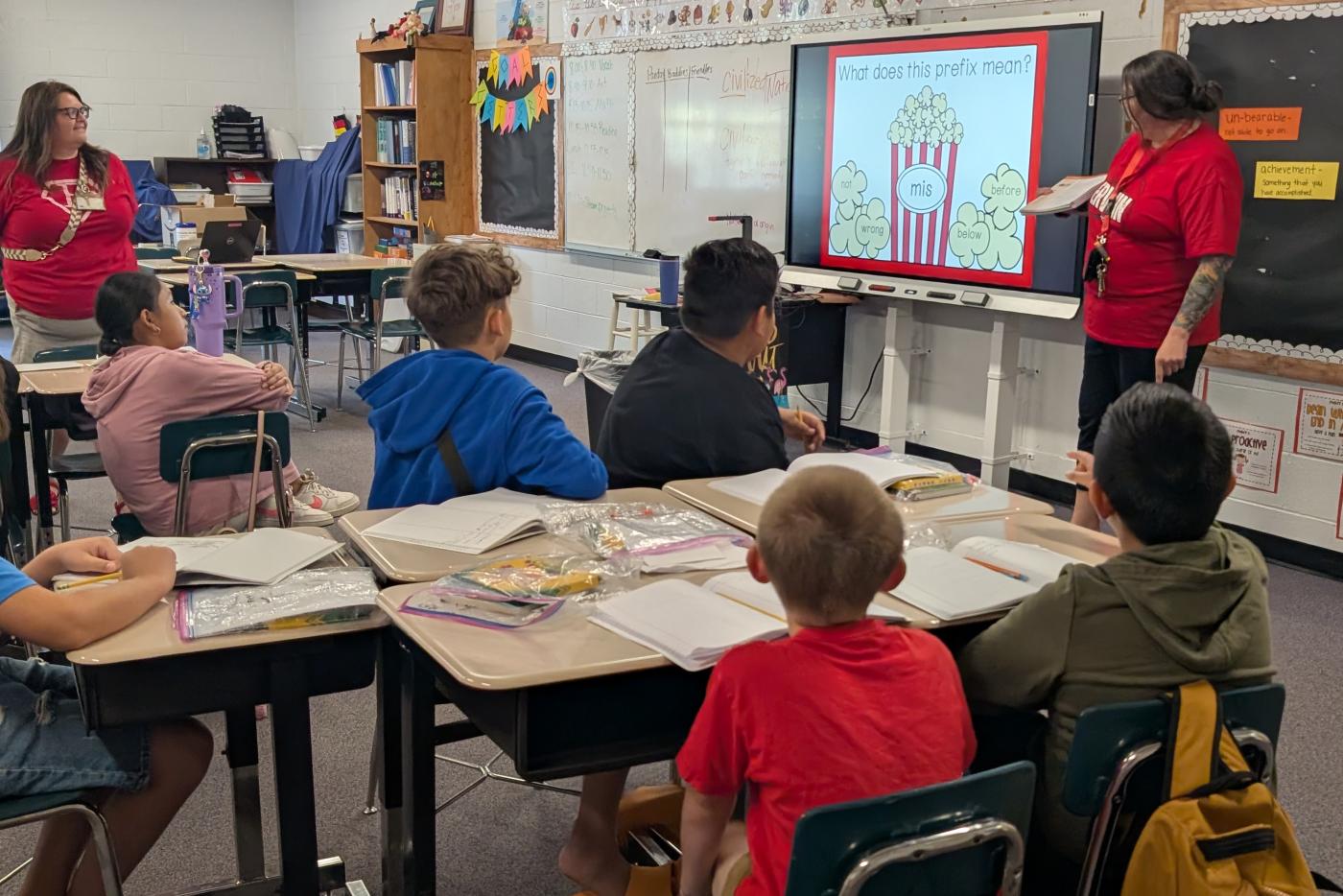This week, Buncombe County Schools wrapped up their summer learning programs, which were offered to more than 500 students to support academic retention and recovery following Hurricane Helene. In March, the Disaster Recovery Act of 2025 – Part 1 directed $9 million for school extension learning recovery programs to help the students in western North Carolina who lost weeks of class time after Helene. Sixteen school systems in the region provided programs this summer. The Governor’s Recovery Office for Western North Carolina (GROW NC) met with Buncombe County leaders on the final day of summer programming to learn about their experiences and share recovery updates.

“Educators’ quick response to this additional funding opportunity was impressive,” said Matt Calabria, Director of GROW NC. “Because of their efforts and the support of the Department of Public Instruction, students had a safe and familiar learning environment with friends, teachers, and behavioral health supports during the summer months.”
Buncombe County Schools were closed for a month immediately following Hurricane Helene. During that time, the district focused on relief and recovery for staff, students, and families while mourning the loss of two students as well as the family members of staff. The school system also saw significant damage to its infrastructure, particularly in areas such as Swannanoa, Barnardsville, and Garren Creek.
Knowing that funding was secured to support summer learning, district site leaders and teachers quickly built a summer curriculum that would help fill gaps for students. “We pulled together arts specialists, health and P.E. teachers, science instructors, and more,” said Meg McKee, Summer Learning Program Coordinator for Buncombe County Schools. “Our goal was to integrate learning across disciplines to offer creative and fun ways for students to strengthen their understanding in essential areas like reading, math, and science.”
Creating a safe and structured space for students to connect over the summer was critical, according to Emily Fagan, who served as a middle school site leader. “We had fun learning to build machines and make water filters, but we also built student-teacher relationships,” said Fagan. “The smaller classroom ratio in summer programs is ideal for helping students connect and engage.”

The benefits of summer learning programs can be seen in metrics measured by the district, according to Dr. Donna Lanahan, Director of Secondary Education. “Programs like this slow chronic absenteeism in the following year,” said Dr. Lanahan. “The preview of curriculum is helpful too.”
In Buncombe County Schools, state-funded summer learning programs were offered for four weeks with one program held at six elementary schools and six middle schools. Two teacher workdays were held before the programs started, introducing teachers to activities that support all learners, regardless of language barriers.
Dr. Rob Jackson, BCS Superintendent, and Dr. Jennifer Reed, Associate Superintendent, are proud of how teachers and staff responded to the chance of increased summer instructional time.
"The summer learning approach is proactive,” said Dr. Reed. “The focus of our team is on how we can get ahead of things and prepare students for the upcoming year.”
“When funding is provided for summer learning programs, teachers step up,” said Dr. Jackson. “Despite being stretched, they are driven to innovate in the classroom, and they care deeply about their students.”

